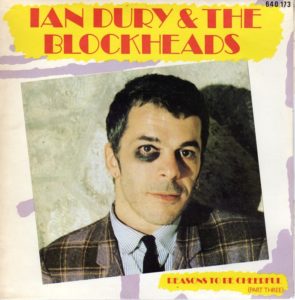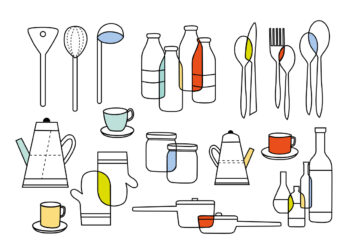 SHARE held its second meeting in June, attended by about 60 delegates mostly from university, corporate, not-for-profit, and government organizations. I really didn’t know very much about SHARE beforehand – other than the fact that it was launched by the Association of Research Libraries (ARL), the Association of American Universities (AAU), and the Association of Public and Land-grant Universities (APLU) in response to the OSTP’s 2013 memorandum on public access – so it was a great opportunity to get up to speed with the organization.
SHARE held its second meeting in June, attended by about 60 delegates mostly from university, corporate, not-for-profit, and government organizations. I really didn’t know very much about SHARE beforehand – other than the fact that it was launched by the Association of Research Libraries (ARL), the Association of American Universities (AAU), and the Association of Public and Land-grant Universities (APLU) in response to the OSTP’s 2013 memorandum on public access – so it was a great opportunity to get up to speed with the organization.
The relatively small number of attendees, lack of hierarchy, and mostly informal sessions made for a very interactive meeting in which we heard from pretty much every participant. I came away feeling quite cheerful about SHARE and where it’s heading – with thanks to the late, great Ian Dury for the inspiration, here’s why:
- Reasons to be Cheerful, Part 1: SHARE isn’t just about public access – something I (and I suspect others) had failed to realize before attending the meeting – in fact, public access was barely mentioned. Open access, however, was a recurring theme. So, if it’s not about public access, what is SHARE all about? Well, according to their website, SHARE’s goal is “to maximize research impact by making a comprehensive inventory of research widely accessible, discoverable, and reusable.” To quote one attendee: “SHARE needs to be shareable!” The presentations and discussions at the Summer Meeting made it clear that the leadership and conference attendees alike want SHARE to play a significant role in helping organizations (primarily academic institutions) to better monitor, understand, and report on their own research outputs. Julia Lane’s excellent introductory keynote, in which she noted that, although US universities are spending $250 per citizen a year on research, way too little is known about the return on this investment, very much set the tone for the meeting overall. And the fact that the first SHARE service to launch was SHARE-Notify, which alerts registrants when a “research release event” occurs, also demonstrates the importance of this aspect of SHARE’s work. One tangible outcome of the meeting was that SHARE subsequently changed their Notify registration process to make it easier for metadata providers to share their data with SHARE. Rather than asking providers to affirm that they have the right to redistribute metadata, they are now simply required to check a box that acknowledges that metadata passed to SHARE will be part of an open data set.
- Reasons to be Cheerful, Part 2: SHARE supports the research infrastructure. The SHARE community likes unique, persistent identifiers, and taxonomies, and metadata, and analytics. Basically all the stuff you don’t see, but that makes scholarly communications work. Not really surprising, since librarians understand the research infrastructure better than pretty much anyone. Parts of SHARE’s vision of their future place in that infrastructure are a little, well, ambitious. To quote Judy Ruttenberg: ““SHARE will be the kind of core infrastructure that helps mitigate the constant proliferation of boutique technical solutions and keeps urging people back to at-scale community solutions.” Or, as one participant put it – SHARE should aim to provide “amazing research analytics – like Thomson Reuters’ InCites but for free”. That’s probably a very long way off! But still, it was encouraging, for example, to hear so many participants raising the need for the metadata being ingested by SHARE-Notify to include identifiers – for people, places, and things. And, while the message from SHARE’s technology partner, the Center for Open Science (COS), was mostly focused on simply getting more metadata to them, the conference attendees were pretty vocal about the need for that metadata to include at least one identifier. Several highlighted the lack of strong, open institutional identifiers, but there was considerably more enthusiasm about personal identifiers (primarily ORCID iDs), although wider adoption is needed for these to be truly valuable. The lack of consistent taxonomies was also flagged as a major issue (to quote Julia Lane, “the only consistent thing is the lack of consistency’).
- Reasons to be Cheerful, Part 3: SHARE is a (surprisingly) broad church – at least in terms of the organizations represented at their Summer Meeting. Although the majority were from universities and other research institutes, invited guests also included representatives from funders (federal and private), commercial entities such as Thomson Reuters and Microsoft, other nonprofits including CASRAI, CHORUS, DuraSpace, NISO, ORCID, and Portico. And there was a lot of emphasis on the need for SHARE to collaborate – and integrate – with these groups, for example, in order to share metadata. As someone who believes passionately that we can achieve more by acting collectively than individually, this was music to my ears! SHARE partnerships with IRIS and ORCID are already in place, and reps from CASRAI, CHORUS, and Portico were called on directly for their advice during the course of the meeting, so I’m hopeful that more such partnerships will be formed in the coming months and years.
It’s not all sunshine and flowers, of course – there’s still much work to be done. As facilitator Greg Tananbaum pointed out, SHARE is a mix of infrastructure, workflow, and policy issues, and the infrastructure part is the easiest. But developing a strong and open infrastructure that will help maximize research impact – and doing so in collaboration with partners both nonprofit and commercial – is certainly a great start!
Discussion
2 Thoughts on "Reasons to be Cheerful: Some Thoughts on the SHARE Summer 2015 Meeting"
SHARE is indeed interesting and I track its progress. (The meeting was by invitation only, so I was not there.) As you point out, SHARE began life as a response to the US Public Access program. See my http://scholarlykitchen.sspnet.org/2013/06/26/universities-propose-to-share-federal-funding-based-articles/.
However, SHARE has basically left the Public Access tent. The SHARE Notify system collects whatever metadata the source provides, which typically does not include funder data. Absent funder data the metadata is of no use to the Public Access program. The SHARE concept now is far grander, namely to notify the world about everything that happens in research. In fact they have come full circle, as it were, because they harvest postings to DOE’s PAGES public access system.



